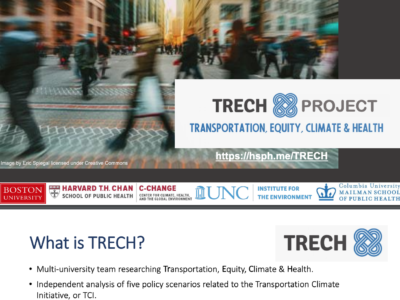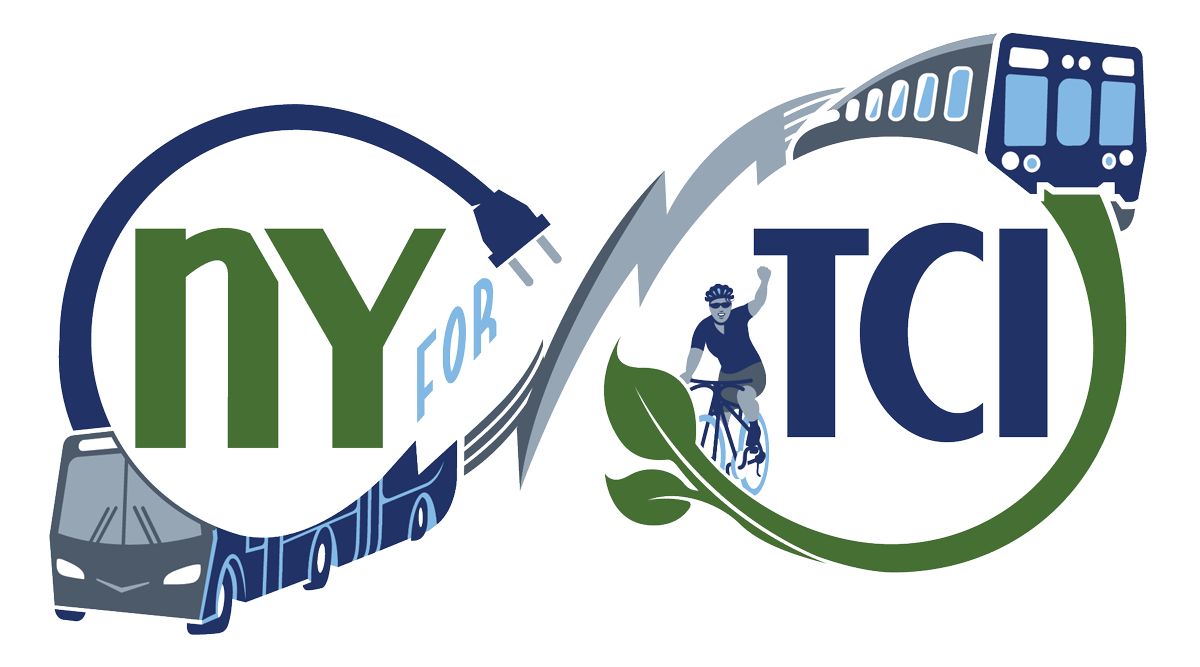
Insights from Preliminary Results
- The estimated health benefits for the five TCI climate mitigation policy scenarios are substantial and are larger than estimated program proceeds, based on this analysis of a subset of total possible benefits.
- The estimated health benefits of the scenarios analyzed include up to about 1,000 deaths avoided and nearly 5,000 childhood asthma cases avoided under the top-performing policy scenario in 2032.
- The policy scenario with the largest health benefits is the one with the most ambitious emissions cap (25%) and the largest share of investments dedicated to public transit and active mobility.
- Under all the policy scenarios examined, health benefits occur in all counties across the region and are concentrated in more populated areas.
- All the policy scenarios examined modestly reduce inequities in air pollution exposure by race/ethnicity but, even with the reductions estimated under the TCI policy scenarios, people of color would still face higher overall air pollution exposures and more emissions reductions would be needed to address pre-existing inequities.
- There is nearly a four-fold difference in the estimated health benefits across the policy scenarios, underscoring the wide range of possible outcomes and that actual benefits will depend on state actions.

